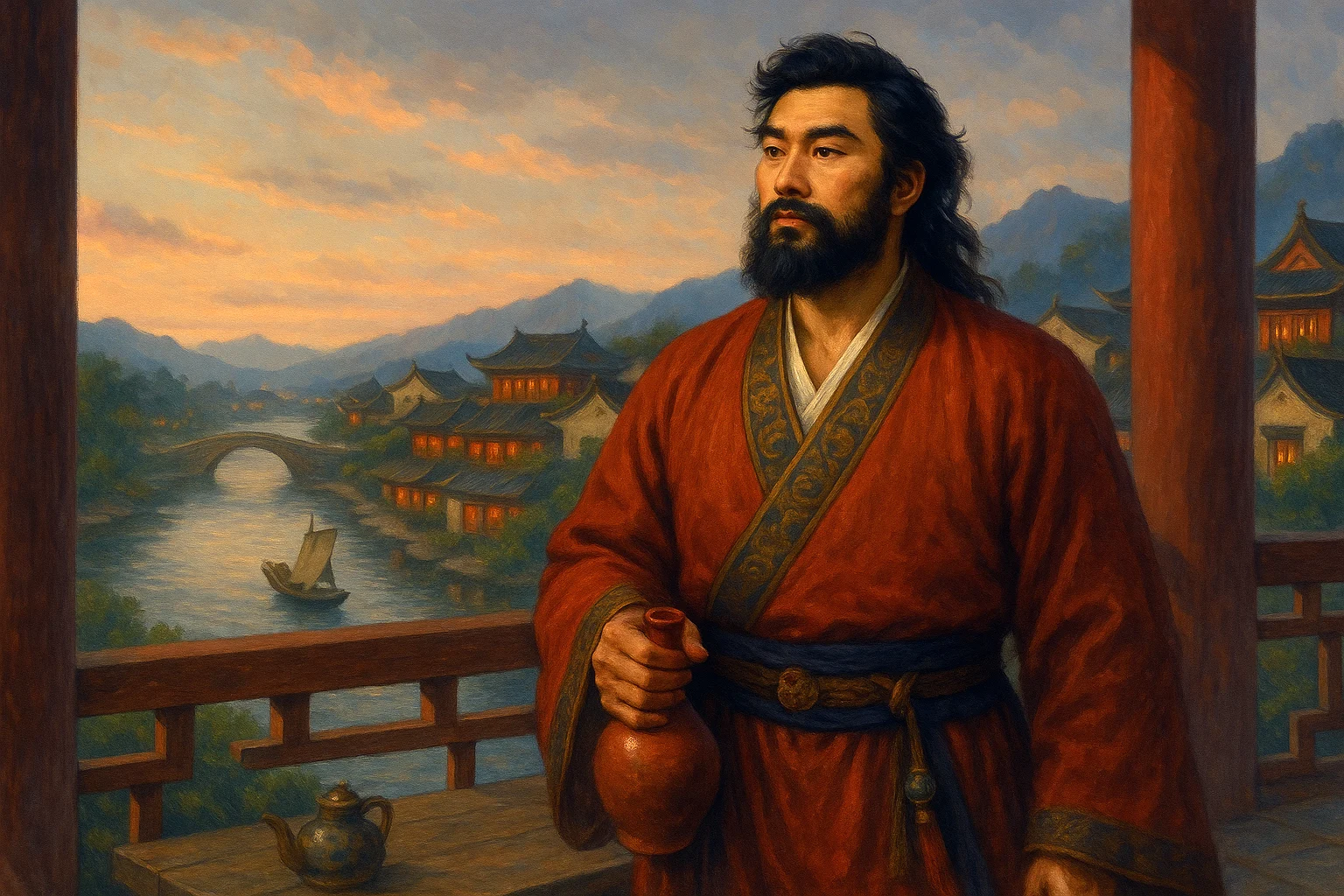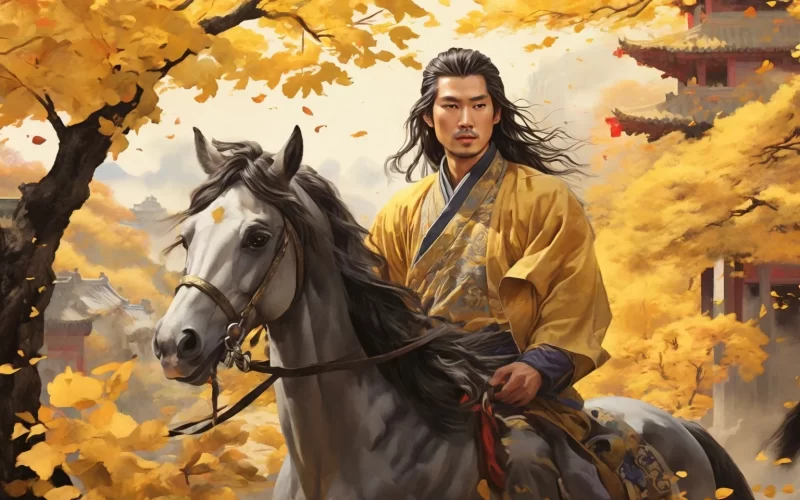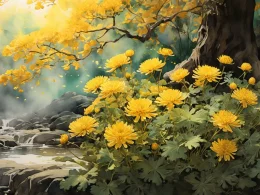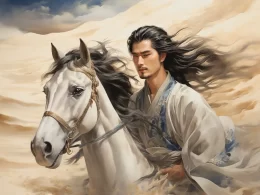The old fort brims with yellow leaves...
You insist upon forsaking this place where you have lived.
A high wind blows at Hanyang Ferry
And sunrise lights the summit of Yingmen...
Who will be left for me along the upper Yangzi
After your solitary skiff has entered the end of the sky?
I ask you over and over when we shall meet again,
While we soften with winecups this ache of farewell.
Original Poem
「送人东游」
温庭筠
荒戍落黄叶,浩然离故关。
高风汉阳渡,初日郢门山。
江上几人在?天涯孤棹还。
何当重相见?樽酒慰离颜。
Interpretation
This poem was composed between the late Dazhong era (859-860) and early Xiantong era (860-862) of Emperor Xuanzong of Tang, when Wen Tingyun was demoted to County Lieutenant of Sui and stationed in Jiangling. During this low point of his life, as his fortunes declined, he wrote this poem to bid farewell to a friend traveling east. Watching his friend depart from Jiangling, crossing Hanyang and passing Yingmen, the poet felt a tumult of emotions, expressing profound longing and blessings through natural imagery.
First Couplet: "荒戍落黄叶,浩然离故关。"
Huāng shù luò huáng yè, hào rán lí gù guān.
Yellow leaves fall on the desolate frontier fort;
My friend departs his homeland with heroic resolve.
The opening sets the scene with "desolate fort" and "yellow leaves," evoking the melancholy atmosphere of late autumn as a backdrop for parting. Yet "heroic resolve" transforms sorrow into admiration for the friend's ambition, creating tension between emotion and imagery.
Second Couplet: "高风汉阳渡,初日郢门山。"
Gāo fēng Hàn yáng dù, chū rì Yǐng mén shān.
Strong winds sweep Hanyang crossing at dawn;
Morning sun lights Yingmen's mountain slopes.
Using parallel structure, this couplet depicts majestic landscapes along the journey. The interplay of river crossing, mountain, sunrise and wind paints an inspiring picture that echoes the friend's "heroic resolve."
Third Couplet: "江上几人在?天涯孤棹还。"
Jiāng shàng jǐ rén zài? Tiān yá gū zhào huán.
How many remain on the river now?
A lone sail vanishes toward the horizon.
The mood turns lyrical as the poet watches the solitary boat disappear, invoking Li Bai's famous line to express both concern for the traveler's fate and the sorrow of watching someone depart.
Fourth Couplet: "何当重相见?樽酒慰离颜。"
Hé dāng chóng xiāng jiàn? Zūn jiǔ wèi lí yán.
When shall we meet again?
Let wine then comfort our parting faces.
The conclusion shifts from scene to sentiment, expressing hopeful anticipation of reunion. The image of shared wine provides a warm, optimistic closure to the poem.
Holistic Appreciation
"Seeing a Friend Off to the East" masterfully blends scenery, emotion and farewell. The six-line poem progresses coherently through layered imagery. Beginning with autumn desolation, it elevates the mood through heroic resolve and morning grandeur, creating unique interplay between scene and feeling. While expressing parting sorrow, the poem ultimately celebrates the friend's ambition and looks forward to reunion, revealing profound humanity and magnanimity. Artistically, the poet employs antithesis, parallel structure and spatial composition to create vast temporal and spatial dimensions, making the poetic realm both grand and profound.
Artistic Merits
- Fusion of scene and emotion with rhythmic undulation: From autumn scenery to majestic views, then solitary images before concluding with emotional expression, the poem progresses layer by layer with rising and falling cadences.
- Grand imagery with tight structure: Using images like "Hanyang crossing," "Yingmen mountain" and "lone sail on the horizon," the poem constructs a thousand-mile farewell picture - compact in form yet vast in conception.
- Rich emotion with crisp language: Though economical with words, each character carries deep feeling, revealing through extremely concise language the rich layers of inner emotion and showing an uncommonly vigorous aspect of Wen Tingyun's style.
Insights
This poem teaches us that even in life's low points with uncertain roads ahead, we should maintain heroic aspirations and hope, facing partings and reunions with authenticity and grace. When bidding farewell, we might use the landscapes in our hearts to support another's journey, employing gentle gazes and words of trust to achieve mutual breadth and composure in life.
Poem translator
Kiang Kanghu
About the poet

Wen Ting-yun (温庭筠) was a native of Qixian County, Shanxi, circa 813-870 AD. Wen Tingyun was a professional writer of late Tang Dynasty lyrics, whose achievements and influence were greater than that of poetry, and was once known as the “originator of the flowers”.











